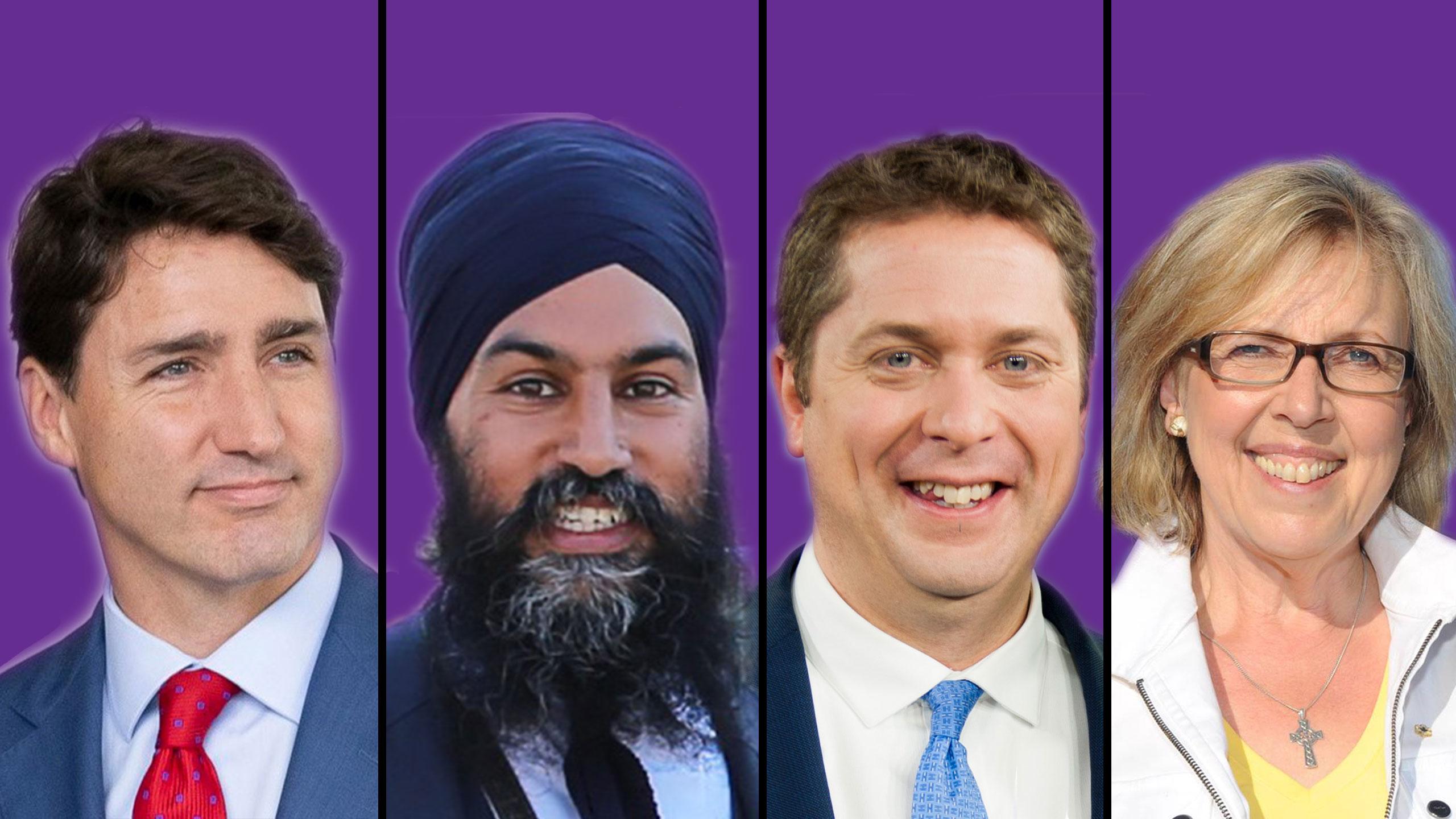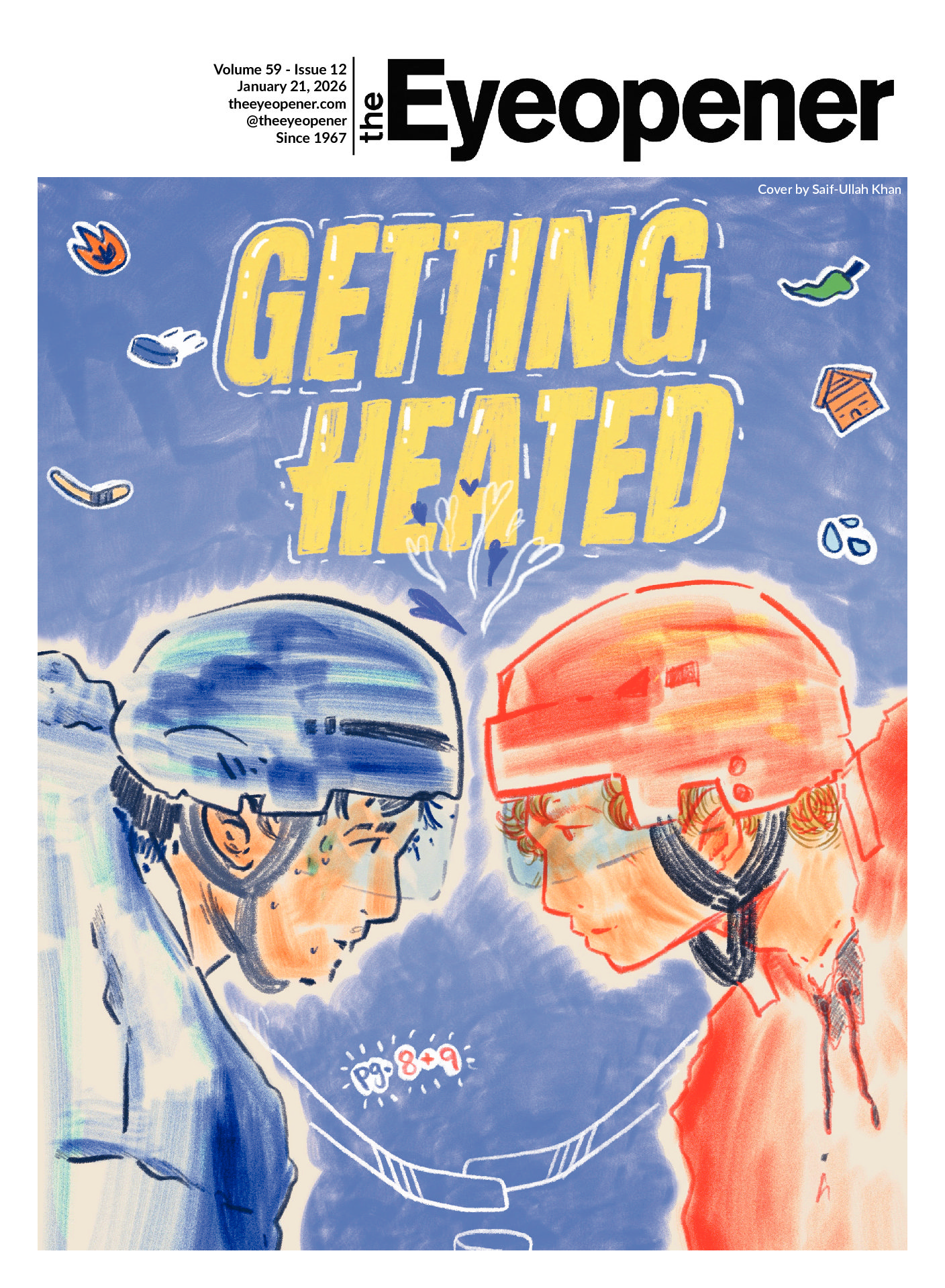By Arianna Kyriacou
So you fancy yourself an informed citizen but you still don’t know how to vote. Here is a guide to the election to make it easier for you at the polls on Oct. 21.
Ryerson students who are Canadian citizens, age 18 and who register before Oct. 15 at 6 p.m., will receive a voter card in the mail, telling them where and when they can vote. Government I.D. that proves your name and address is required to register.
First-time voters can register online at elections.ca. Ryerson students, faculty and staff can vote in advance on campus from Oct. 5-9 at the Student Campus Centre, regardless of where their home riding is.
If you choose to vote in your home riding, you can find yours at elections.ca.
Students and faculty not voting on campus can vote in their riding during advance polling from Oct. 11-14, and on election day on Oct. 21.
“As important as every election is, this one seems, to me, to carry some extra importance with it,” Emily Mackey, third-year English student said. “This election is going to say a lot about the values that Canadians hold and what we as a country really care about.”
For the first time ever, millennials make up the largest voting block in a federal election, according to Abacus Data, a research firm based in Ottawa.
Canada uses the single-member plurality voting system, which means the candidate who gets more votes than any other candidate is declared the winner. Depending upon the number of candidates and their relative popularity, the winning candidate may or may not need a majority of votes to win.
It may be difficult finding a party that aligns with your beliefs as the campaign trail gets complicated with past transgressions from candidates like Prime Minister Justin Trudeau’s blackface scandal from 2001 or Conservative party leader Andrew Scheer comparing dogs with five legs to gay marriage in 2005.
There are 21 registered political parties, but the major four are: the Liberal Party of Canada led by Trudeau; the Conservative Party of Canada led by Scheer; the New Democrat Party (NDP) led by Jagmeet Singh; and the Green Party of Canada led by Elizabeth May. Here’s a breakdown of each of the parties promises on major issues.
Climate Change
Liberal Party of Canada
The Liberal party’s campaign includes promises to conserve 25 per cent of Canada’s land and ocean by 2025. Other promises include a ban to single-use plastic by 2021 and requiring federal buildings to be completely powered by clean energy by 2022. It was not stated how this requirement would be enforced.
Conservative Party of Canada
The Conservative Party does not have an emissions reduction plan. Their campaign includes a two-year tax credit for green homes and a green credit for income generated from green tech.
New Democrat Party
The NDP campaign plans to reduce Canada’s greenhouse gas emissions by 37 per cent (2017 levels) by 2020 and modernize and expand public transit to make it eco-friendly. The NDP also wants to ban single-use plastic by 2022, and protect at least 30 per cent of our land, freshwater, and oceans, and eliminate fossil fuel subsidies immediately.
Green Party
The Green Party aims to lower Canada’s emission reduction goal to 60 per cent by 2030 and immediately stop all new fossil fuel development projects. In addition, the party also plans to have 100 per cent of all Canada’s electricity come from renewable sources by 2030.
Indigenous Affairs
Liberal Party of Canada
The Liberal Party plans to make the United Nations Declaration on the Rights of Indigenous People (UNDRIP) legally binding. UNDRIP defines the individual and collective rights of Indigenous individuals, including their rights to culture, language, identity, health and overall well-being.
Conservative Party of Canada
The Conservative Party does not have any specific policy proposals established regarding Indigenous affairs at this time.
New Democrat Party
The NDP also wants to make UNDRIP legally binding and introduce Indigenous People’s Day as a national holiday. The party plans to work with Indigenous people to co-develop a National Action Plan for Reconciliation, and establish Indigenous history programs for all Canadians. Another promise is to create a plan to address violence against Indigenous women, girls and LGBTQ2A+ individuals.
Green Party
The Green Party plans to make UNDRIP a law and dismantle the Indian Act, a Canadian federal law stemming from colonialism governsing Indigenous matters. The party also plans to implement the calls to action from the Truth and Reconciliation Commision of Canada and the Missing and Murdered Indigenous Women and Girls Inquiry.
Education
The federal government doesn’t have jurisdiction over education and student debt.
The Conservative Party has made no specific proposals at this time.
Liberal Party of Canada
The Liberal Party says it will increase federal student grants, give a two-year grace period and pause student loan repayments for parents until their youngest child turns five.
New Democrat Party
The NDP says it plans to eliminate interest on the federal portion of student loans and increase access to student grants.
Green Party
The Green Party intends to allocate $10 billion to post-secondary and trade school supports, eliminate post-secondary tuition fees, forgive existing federal student debt and increase funding for Indigenous students.
UPDATE: This story has been updated to include the Green Party’s announcement that took place at the Ryerson’s Centre for Urban Innovation on Oct. 1.












Justin Trunope
You left out a majority of the platforms and plenty of info on each platform. Also, why did you choose to highlight indigenous affairs? The indigenous should be a near non-issue, economic policies should be front and centre here. This is why Canada is no longer a competitive economy globally, the liberal government has focused on putting through virtue signalling policies and parading the idea that “diversity is our strength” instead of properly managing the economy.
Ryan Lester, Conservative Candidate for Toronto Centre
I’m Ryan Lester, your Conservative Candidate for Toronto Centre, the riding where Ryerson University is located. I’m also an alumnus of Ryerson’s Public Administration & Governance Program. I’d like to add more content to your article’s two topic areas: Climate Change and Indigenous Affairs.
Canada’s Conservatives have a plan to reduce emissions and protect our environment. I believe we should all be concerned about climate change – about the kind of planet we will leave to future generations. Our plan is built on three guiding principles: (1) Green technology, not taxes (2) A cleaner and greener natural environment (3) Taking the climate change fight global. Canadians Trusted Justin Trudeau when he said he would protect the environment and lower Canada’s emissions. Instead, we got was a carbon tax. A carbon tax isn’t an environment plan. A carbon tax hits hard-working and young people the hardest, with higher costs for everything from groceries to transportation and monthly utilities. My problem with the carbon tax is that it doesn’t apply to Canada’s biggest polluters, thanks to a deal that Justin Trudeau made to allow them to pay no tax on up to 90% of their emissions. Plus, the carbon tax isn’t working. Not only is Canada failing to hit our Paris Agreement targets, we are getting further and further away. For students specifically, I know how important transit and affordability are. That’s why Conservatives will bring back the tax credit for public transit, making transit passes more affordable. I doubt Bill Morneau has ever taken the TTC, which is why he cut the tax credit as soon as he was elected. Bill Morneau and Justin Trudeau are just not as advertised, and with all their broken promises and ethics violations, they just can’t be trusted to make life more affordable for students.
Learn more at https://aRealPlan.ca
When when it comes to Indigenous Affairs, I believe that there can be no true and lasting reconciliation without economic reconciliation. The government must act to empower Indigenous communities to share in the wealth that Canada is so capable of creating. And Conservatives support effective investments in important areas, such as access to housing, health services, and good quality drinking water. It is absolutely unacceptable that people in Indigenous communities do not have access to the same quality of drinking water as the rest of the country. I don’t believe the government gets to give itself a pat on the back for getting only part of the job done when it comes to clean drinking water for Indigenous communities. This is a government that has soared further and further into debt over these past four years – if they were truly committed to ensuing clean drinking water for Indigenous people, Bill Morneau should have been able to make it happen. He is, after all, the second most powerful man in Ottawa.
Learn more about me at ryanlester.ca and you can follow me on social media:
https://twitter.com/RyanLesterTO
https://www.facebook.com/ElectRyanLester
Sim
This was supposed to give us an idea of the 4 major party platforms yet only covers 3 areas of concern 1 of which is mainly provincial jurisdiction.
When will we see a tangible section on Canada’s foreign policy, int.trade, immigration etc.
Housing, affordability, national cellphone providers, broadband and wifi accessibility, infrastructure.
This article seems almost plagiarized from the format of the Maclean’s breakdown but less informative.
This article was less useful than the federal English language debate with the 6 major party leaders. And that’s saying ALOT: https://www.theglobeandmail.com/opinion/article-the-federal-leaders-debate-was-historically-ridiculous/?fbclid=IwAR3YUmq4J7sjCOiIaid67WnSqidJpG7toVoCLXBeanupu1nFyfRDTGC4d2o